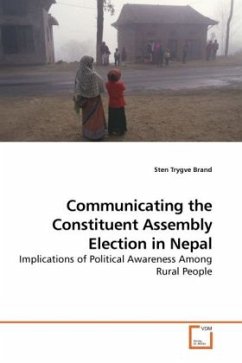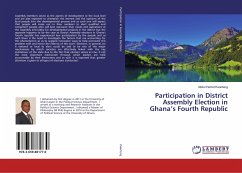This study explores the function of the media as an information provider in rural Nepal in the wake of the Constituent Assembly election, and how lack of information affects rural people s attitude and understanding of the democratic process. The duration of the fieldwork lasted from the end of October to middle of December of 2007, during a period of political upheaval and civil unrest. The research result concluded that access to information shapes the villager s views of the election in either negative or positive way. The study revealed general lack of respect for journalist among individuals and groups. It points to the fact that many journalists are not following ethical code of conducts for media professional, either due to lack of training or political motives, and finally it gives clues to why the media failed in forecasting the election result.


